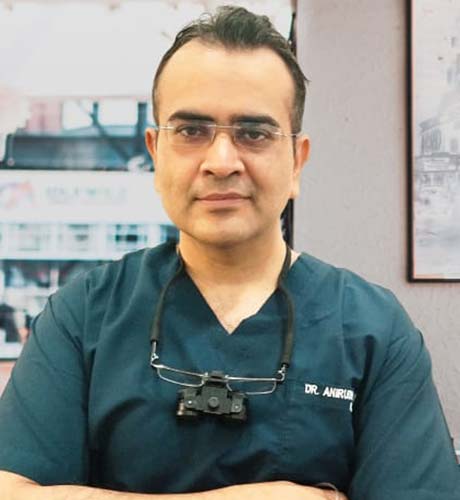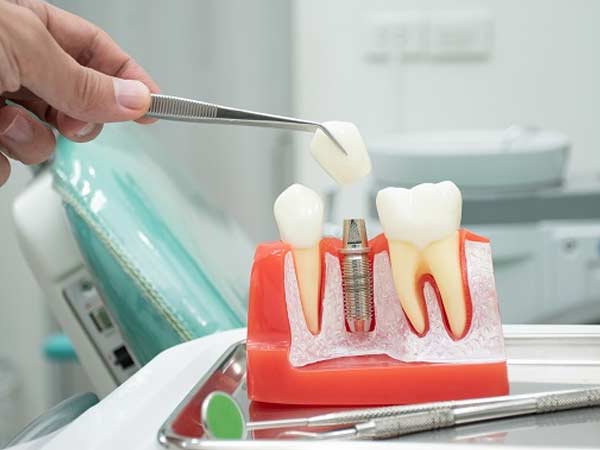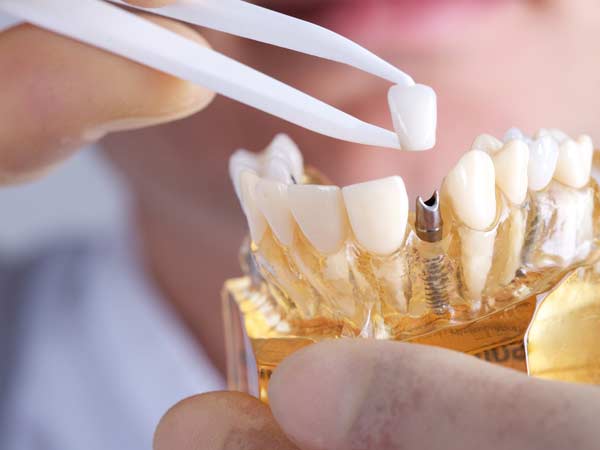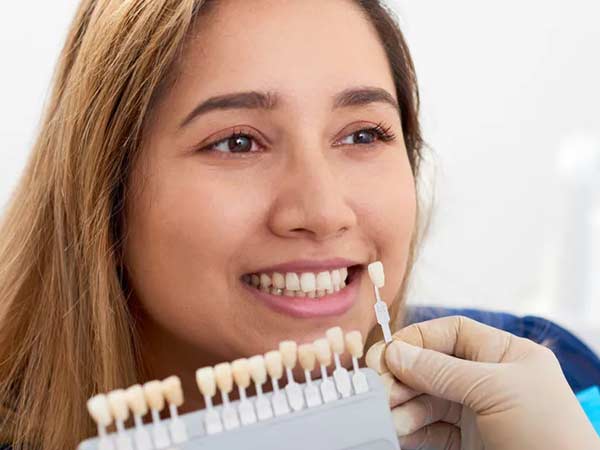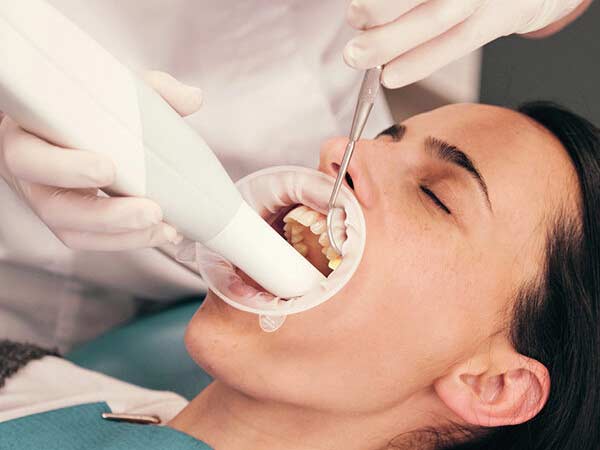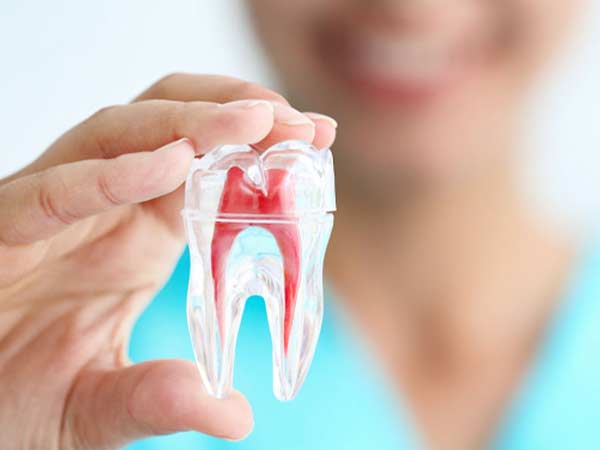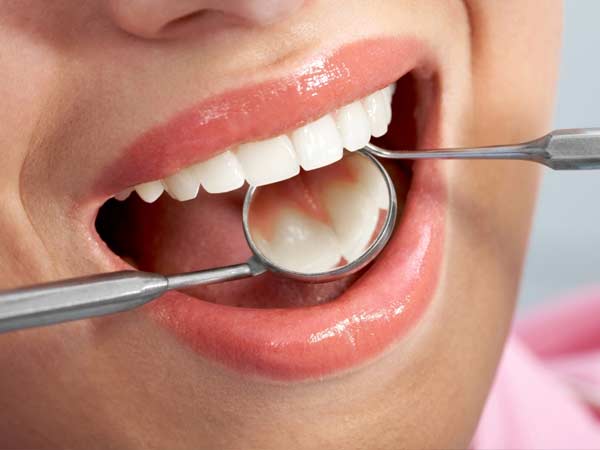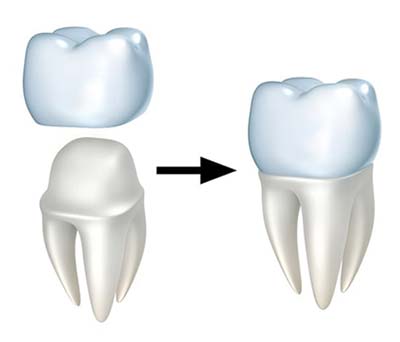 A dental crown is a custom-made, permanent restoration. They look like a hollow, tooth shaped “cap”, which is placed over a prepared natural tooth.
A dental crown is a custom-made, permanent restoration. They look like a hollow, tooth shaped “cap”, which is placed over a prepared natural tooth.
When cemented into place, crowns completely cover the entire visible portion of the tooth that lies at and above the gum line.
Dentistry has come a long way from the old days of plain metal crowns.
While they still have many useful applications, these days we are able to offer a wide variety of options to suit your individual case. Whether you are after durability, strength or the most natural aesthetic appearance, we can custom manufacture a crown to fit seamlessly into your smile. Crowns offer incredible practicality in their use. One of their most important functions is allowing patients to repair, and therefore keep, their natural teeth. They can also create the most amazing cosmetic transformations. If you are interested in how a crown may be able to benefit your smile, contact us for a consultation.
What is a dental crown?
Crowns are also used in implant cases to replace missing teeth that have been lost due to disease, decay or an accident. A dental implant is an artificial root that is inserted into the jawbone to support and hold the crown in place, where there is no natural tooth or root structure to do so.

Why is a dental crown needed?
The main purpose of a crown is to restore strength, functionality, shape and size to a tooth, and to improve its appearance.
Situations where a crown may be needed include:
- To protect a tooth that has become weakened (for example by decay) or cracked, by holding it together and preventing it from breaking.
- To replace an old, broken or failing tooth filling.
- To restore a tooth that has already broken.
- To restore length on worn down teeth (for example from grinding).
- To cover and support a tooth that has a large filling if there isn’t much natural tooth structure left.
- To make a cosmetic modification such as closing spaces between teeth, or reshaping or rotating teeth.
- Crowns are used to hold dental bridges in place.
- A crown is used to cover a dental implant.
- A crown is recommended to restore strength to any tooth that has undergone root canal therapy.
A crown will not only enhance the appearance of the tooth, but will protect it from further wear and breakdown.
In the case of an entire missing tooth, gaps left in the mouth will eventually cause the surrounding teeth to shift or rotate into the empty space, causing malocclusion (‘bad bite’), which can have a negative impact on diet. It can also cause bone deterioration in the jaw and temporomandibular joint (TMJ) disorders. Therefore, it is always advisable to discuss tooth replacement options with your dentist, such as an implant and crown, rather than leaving gaps in dentition.
What types of crowns are available and what is the difference between them?
Permanent dental crowns can be made from:
- All metal,
- All ceramic,
- Porcelain-fused-to-metal,
- Stainless steel, and
- All resin materials.
All-Ceramic / All-Porcelain Crowns
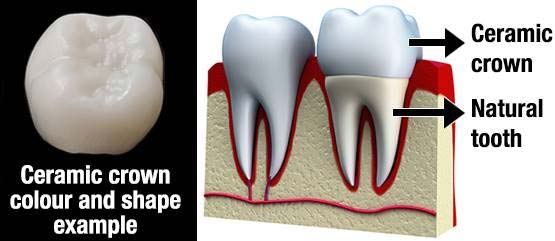
The term “all ceramic” crown literally means the entire crown is made out of a ceramic material.
All ceramic crowns are sometimes also called ‘all porcelain crowns’.
All ceramic dental crowns provide a natural appearance and colour match that is amazingly lifelike and unsurpassed by any other type of crown. The lustrous, glistening optical quality of a natural tooth is generated by the way light passes through the tooth and is then reflected out. The goal in the creation of a ceramic crown is to mimic the light handling characteristics, and therefore appearance, of a natural tooth. Generally speaking, the best way to achieve this effect is to use very translucent porcelain in a thick layer.
Types of ceramic crowns:
There are many different types of ceramic crowns and brands of materials available. Some of the main kinds are:
1.Feldspathic Porcelain Crowns
2.Zirconia Crowns-monolithic and core only crowns
3.Aluminous Crowns – Procera, Empress and Emax
Consult us to know which variety will best suit your needs..
All-Resin Crowns
The term “all resin” crown literally means the entire crown is made out of a resin material.
All resin crowns are primarily used as a temporary measure, protecting the tooth or filling until the permanent crown has been manufactured. The reason resin crowns are often only used as a temporary measure is because they wear down easily over time and do not withstand biting and chewing forces very well. They are also relatively vulnerable to fractures compared to other crown types, which does not make them a very appropriate permanent option.

